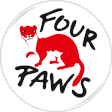The Department of Agriculture, Land Reform and Rural Development has published draft Regulations for the Exportation of Live Animals by Sea, for public comment. We need your help to show the Department that the public is opposed to the cruel practice of live export. The deadline for submissions is 25 August 2025!
You can help the animals by submitting your name and completing the form, to email the Department and urge them to stop live export.
Email the Director-General NOW!
- Dear Director-General
Dear Director-General,
I urge the Department to fulfil its obligation to safeguard the welfare of animals by prohibiting live export by sea.
Animals subjected to live export endure harrowing journeys during which they suffer from heat stress, failure to adapt to unfamiliar feed, an inability to access sufficient water and/or food, suffocation due to failed ventilation systems, motion sickness, injury, drowning, cyclones, and/or rejection or cruel treatment upon arrival at the destination.
Live export also increases the risk of zoonotic diseases spreading globally. The animal welfare and human health harms associated with live export far outweigh the profits that a few companies stand to make, whilst ignoring job creation within the carcass trade supply chain for ordinary South African citizens.
Animals transported from South Africa often embark on ships that don’t meet animal welfare requirements; Most livestock vessels are old, converted cargo vessels and many pose a high risk to maritime safety, crew, and animals.
The Regulations are broadly termed and display a lack of diligent, science-based research and attention paid to the complex environmental and welfare requirements of the various species exported. Qualifying wording throughout the Regulations will hinder enforcement and allow for industry to subjectively self-regulate. Furthermore, despite the potential enactment of the Regulations, it will not be binding nor enforceable once a vessel is at sea, leaving the animals vulnerable and likely to suffer immensely. This will be the case, even if the Competent Authority concludes an agreement with the country of destination, who will also lack authority on the open seas.
The Regulations furthermore fall short in that they:
- Contain no definitions for ‘welfare’ or ‘humane’.
- Refer to the ‘monitoring’ of the ‘population’, disregarding the needs of individual animals.
- Allow the on-board veterinarian to be a person registered with any statutory body in any country, despite such qualification possibly not being at the same standard as South Africa’s veterinary qualifications. The on-board veterinarian must be an independent professional assigned by the Competent Authority, and not hired by the exporter, to ensure that no conflict of interest exists.
- Disregard the animals’ positive mental state, as required by the globally accepted Five Domains.
- Fail to prescribe scientifically sound maximum road and rail transport times for each individual species. Nor does it mandate the provision of rest, food, and water during road and rail transport. Transport duration without animals being offloaded and allowed to rest should never exceed 8 hours for adult cattle, sheep, goats, and pigs.
- Fail to prescribe scientifically sound environmental requirements for each species, to ensure that animals have access to adequate fresh air and are protected from cold, heat, humidity, and noxious fumes. For instance, immediate remedial action must be taken if ammonia levels are greater than 10ppm or, for cattle, when the temperature-humidity index exceeds 72.
- Fail to state that animal handlers must handle animals humanely and calmly, without the use of electric prodders and without pulling, dragging, or carrying any species of animal by the limb/s, tail, fleece, horn/s and/or ear/s.
- Fail to specify in detail how and when animals must be humanely euthanized and what the contingency plan is in case an animal is unsuccessfully stunned.
- Fail to specify that only the on-board veterinarian may perform euthanasia.
- Fail to prescribe adequate space allowances for the different species.
- Fail to state what must happen to animals that are not allowed to disembark at the destination.
- Infringe on South Africans’ right to access information under section 32 of the Constitution, by preventing footage taken on-board from being shared with the public.
- Fail to prescribe appropriate sentencing for offenses committed in terms of the Regulations.
I am opposed to the cruel practice of live transport by sea - I urge the Department to prohibit live export by sea and to exclusively shift to a carcass trade.
Thank you for the opportunity to comment.
Yours sincerely
© We Animals Media


